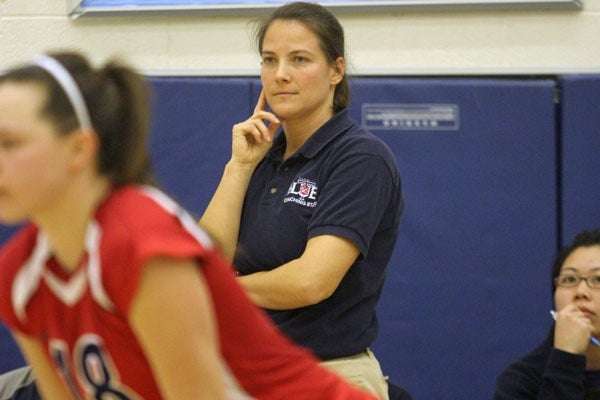
Gender equity in university sports
Published: January 16, 2014
The bad news: gender equity in Canada's interuniversity sport system has taken a step backwards in recent years. The good news? It's a marginal step.
In a report released this week, University of Toronto researchers found that sports and elements of sports leadership at Canadian universities are less equitable than in 2011 – with the notable exception of an increase in the number of women athletics directors.
“Great strides have been made in the last 30 years in terms of female participation in interuniversity sport, but the progress toward equity appears to have stalled in the majority of cases,” says Professor Peter Donnelly, director of U of T’s Centre for Sport Policy Studies and one of the lead authors of the report.
A 2011 report on the issue by the same researchers and the just-released study found similar patterns of under-representation of women in all areas. The researchers analyzed athlete participation data based not only on the number of opportunities across all Canadian universities, but on the gender split in the student body. They found that although 56 per cent of post-secondary students are female, male athletes make up 57 per cent of varsity athletes (up one percentage since 2011).
Kristine Drakich is well acquainted with Canadian intercollegiate sport culture. The Varsity Blues volleyball alumna has been at the helm of the team as head coach since 1989. Over the years, she has seen efforts to make varsity sport more equitable for women ebb and flow.
“When I started there was a great deal of attention paid to the lack of female coaches and resources were in place to change that,” says Drakich. Her first role as a coach was actually part of a Coaching Association of Canada’s Women in Sport leadership program.
“It was a three-year mentorship program that had a phased-in salary support program with the goal of having a full-time position at the end. In the late 90’s these resources no longer existed and the interest in providing incentives or supporting women in coaching faded.”
From Drakich’s perspective, the climate for female athletes has improved over the last decade or so, but the culture remains male-centric.
“Women’s sport does get more attention than it did when I was competing and some things are more equitable. But women’s sport is still valued less than men’s at universities and in the sport community in general," Drakich says. “There are fewer female university coaches in Ontario now than when I first started coaching. When I started at U of T there were about eight female [volleyball] coaches in the Ontario league and in 2013-14 there are four.
"This has changed the conversations around the table at coaches meetings and also puts a lot of pressure on the women who are there to get involved at many different levels.”
The study found some progress in leadership equity since 2011 when women made up only 17 per cent of athletic directors. Today, almost one in four university athletic directors are women. But researchers found seven fewer women head coaches throughout the system, with women dropping their representation from 19 per cent to 17 per cent of all head coaches. More men are now also coaching women’s teams, up two per cent to 68 from two years ago.
Professor Bruce Kidd, a long-time international advocate for equity in sport, was a co-investigator on the project, along with PhD candidate Mark Norman.
“Canadian universities should be setting the bar in terms of equity, not scrambling to keep up,” says Norman. “Women deserve opportunities proportionate to their participation in university – and they also need to be better mentored and prepared to take on leadership roles down the road.”
Drakich agrees. “We need to identify female leaders, including student-athletes and encourage them to explore coaching and create opportunities to enter the coaching profession as volunteers or staff through incentives and certification opportunities. We need to provide mentorship to help them grow, develop and succeed as the leaders of tomorrow.”
The study’s authors are tasking Canadian Interuniversity Sport and its four regional counterparts with three challenges: to revamp their gender equity policies based on these results, to create an immediate 50 per cent target towards proportional female participation, and to develop a plan for improving leadership opportunities for women in coaching and senior administration. (Read the report.)
Valerie Iancovich is a writer with the Faculty of Kinesiology & Physical Education at the University of Toronto.



